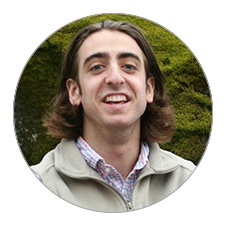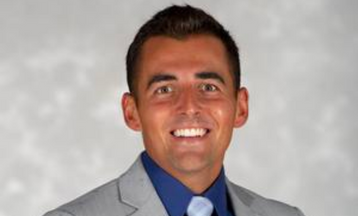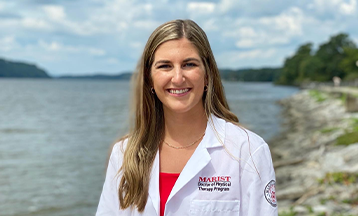-
About
Marist Commencement
Celebrating the Class of 2025
• The graduate ceremony will be held on Friday, May 23.
• The undergraduate ceremony will be held on Saturday, May 24.About
-
Academics
Marist Commencement
Celebrating the Class of 2025
• The graduate ceremony will be held on Friday, May 23.
• The undergraduate ceremony will be held on Saturday, May 24.Academics
-
Admission & Financial Aid
Marist Commencement
Celebrating the Class of 2025
• The graduate ceremony will be held on Friday, May 23.
• The undergraduate ceremony will be held on Saturday, May 24.Admission & Financial Aid
-
Student Life
Marist Commencement
Celebrating the Class of 2025
• The graduate ceremony will be held on Friday, May 23.
• The undergraduate ceremony will be held on Saturday, May 24.Student Life
- Athletics
Ian Krout Image

Ian Krout
Bucks County, PAAcademic School
ScienceCampus
New YorkIan Krout entered freshman year with little idea of what he wanted to do, or what major he wanted to study. When his parents expressed that they didn’t want him to start college with an undecided major, he chose environmental science—just to appease them.
Now a junior, Ian’s seemingly random choice of major has become both his job and passion. “I was always an outdoors person growing up,” Ian says. “I’ve always loved hiking and swimming, and I’m always outside doing things. So, that kind of drove me to my major.” On top of that, he recalls that he loved his AP environmental science class in high school, as he was interested in expanding on what he learned there.
Ian continues, “I didn’t really have much of an idea of what it [environmental science] was, but it was the only thing I felt like I actually wanted to look into.” So, Ian began his freshman year taking all of the necessary environmental science classes and he learned to love them. The passion he found for his major evolved through the classes he took with Dr. Richard Feldman, associate professor of environmental science at Marist, whose lessons Ian says are always “eye-opening and deep.”
After taking a series of Dr. Feldman’s classes, including “Introduction to Environmental Issues,” “Natural History of the Hudson Valley” and a seminar on climate change, Ian realized that he wanted to put his newfound passion to work. Through word-of-mouth and the help of a friend, Ian was chosen during the summer of 2016 to be the watershed intern for Matt Alexander, the mayor of Wappingers Falls, N.Y.
As watershed intern, Ian explains that he worked with the mayor in terms of “relaying environmental information so that issues that occur in the village [of Wappingers Falls] are relayed to the people who live there through public outreach, town meetings and reaching out to upstream municipalities, to make sure the people who are affecting the watershed know what they’re doing and how it affects us.”
Having worked through the summer, Ian’s hard work paid off, granting him the option to extend his internship. Today, he continues his work for the mayor, while simultaneously taking five classes for credit as well as audit a sixth class.
Ian’s will to achieve and his dedication to his job as well as his major have proven worthwhile time and time again, in areas reaching far past his internship. In the spring of 2016, he was awarded “best manuscript” at the Eastern College of Science Conference (ECSC) for his research on, “pharmaceuticals and their effects on native aquatic vegetation,” he explains. This past summer, Ian was given the Tibor T. Polgar Fellowship from the Hudson River Foundation for his study on microplastics and the effects they have when they enter our waterways.
A few months later, in November of 2016, he was accepted with two other colleagues to attend the Orlando Society of Environmental Toxicology and Chemistry (SETAC). At this international conference, Ian presented research again on, “the impacts that different communities’ structures, including income, population density, and land use have on the amount and type of microplastics found in nearby tributaries.”
Ian hopes his efforts during his undergraduate career will lead him to obtain a Ph.D. in pharmacology, so he can continue his work in toxicology. “I want to test new pharmaceuticals for the effects they might have on patients that are taking them. That’s what I really want to be doing, but anything related to human health and the environment would be great,” Ian says.
He hopes his work inspires his peers and other students to get involved and take any opportunities that are presented to them. “I’ve been really fortunate at Marist to run into these opportunities and fortunate enough to actually get these opportunities,” Ian says, “but I think there’s a lot out there for students. They just need to look into opportunities and go for them.”
Ian is now in his second year of earning his Ph.D. from the University of Rochester.



